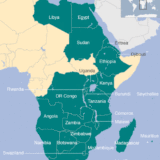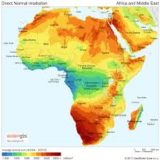What does it say about us?
I had the privilege to facilitate a programme for a group of senior executives from Mauritius and France the past week. We had the opportunity to listen to a group of prominent South Africans on topics such as the SA economy, the status of the social dynamics within the country, and other topics.
Whilst listening to a talk by Rhoda Kadalie on the situation in South Africa 20 years after the start of democracy, I had a feeling of a kind of déjà vu. It made me sad that we do not learn from history. Allow me to explain.
When I look at Germany, the period between 1933 and 1945 comes to mind. What does it say about the German population that they tolerated a Hitler? That they tolerated being dragged into a world war? This in spite of being an extremely intelligent and productive nation? Given my history background, I am aware of all the coercion etc that took place. But there’s a small little voice in my mind that says, still?…
Then my mind flipped to the Afrikaner in South Africa in 1948. What does it say about the Afrikaner that when the rest of the world moved towards democracy, we elected a political party to power that put in place racial policies that were reprehensible, to say the least? This in spite of being an intelligent and productive cultural group? Again, I am aware of the issues in our history that prompted this behaviour. But there’s a small little voice in my mind that says, still?…
And then I look at the political situation in South Africa in November 2014. What does it say about the ANC that it puts in place a president that is clearly more interested in himself than in the good of the country? That they not only tolerate him, but that they actively support and protect him against any endeavour to call him to task for his actions, or lack thereof? I am aware of the issues in the history of this country that will explain his behaviour, and that of the ANC. But there’s a small little voice in my mind that says, still?…
What is clear to me is that we are not identifying these trends and we are not learning from them. And while there is nothing we can do about the German and Afrikaner issues, other than learning from them, hopefully there is still something we can do about the ANC issue. I refuse to believe that there no ANC leaders that do not have the gumption to put their foot down and call the president to order. I refuse to believe that there are no ANC leaders that do not see that protecting the president at all costs is wrong for the future of this country! That do no see that the corruption we read about every day is ruining the future of this country!
I wrote an article a couple of years ago (2010) about the leadership situation in this country. I stated that the ANC owed it to this country to produce leaders in the ilk of a Mandela and a Tutu, given their dominant position in this country. I expressed my concern that things were going in the wrong direction (http://johanhburger.com/leadership-in-sa-on-the-brink-of-the-abyss/). I still am a bit of an idealist, but we need more than idealism to deal with what we have.
Parliament is becoming somewhat of an embarrassment. If it is not the riot police that remove opposition politicians, it is the nature of arguments that is a serious source of concern. I have no doubt that there are those who will state it is healthy for a democracy to have robust debates. I am not sure, however, that what we are currently experiencing is healthy! And we the taxpayers are footing the bill for this circus! That hurts!
And looking at it all, I am asking myself, what does it say about us? And what are we going to do about it?


























Thank you Johan for your insight, I must admit, I’m equally perturbed. Apartheid prevailed because citizens at the time allowed others to make appalling decisions and policies on their behalf. The Germans did the same. I’m sure in both groups, there were people who were disturbed but were not brave enough to rattle the boat and say, this is not it. Black people are doing the same now, deep down we know, this is not it but we are watching doing nothing. It’s called group effect, it’s never easy to go against what you consider to be your own. This is the unfortunate consequence of social divides. Without social divides there would be no in groups. Without ingroups, we would all be citizens and it is in the power of citizenship that we could find it easy to fight against injustices, immorality, corruption and hold governments accountable, regardless of gender, race, or age. We would simply be people standing up for what is right for their country.
Thanks for this contribution, Kanyisa. Your point is so valid. Without the courage of our convictions to do the right thing, it is as bad as doing the wrong thing. We have to stand up for what is right! There is no more luxury of hiding behind anonymity.
Very good article! I think Kanyisa has a very valid point. My dad and a number of other (independent) people over the years said regarding Apartheid: “What I voted for, is not what I got. I never voted for what we now have.” Perhaps there is something to that.
Then, I think history played a huge role in my dad’s case. Or, to put it differently, the reaction to the Anglo- Boer war had far reaching consequences.
Lastly, and perhaps the most important, the alternatives during my time as voter were not very convincing. I therefore for a long time put in a “negative vote”.
What can we do? Perhaps start a new UDF – can we call a new Boesak? I am scared of saying a new political party, given recent history.
The good news is: more and more people of all races are sharing your concern.
Thanks Piet! As always, a very balanced and value-adding response!
It is indeed all of our responsibility to be the leaders we seek in this world. Be it the leaders governing our country or be it boardrooms in our families. We’ve become a tolerant society believe the change must come leaving it up to a “them”. In the Anc it’s the opposition parties responsibility to challenge the status quo and they are with much debauchery. Corporations are pulled down to their knees because of our tolerance as a corporate society and the list goes on. So where will it end is a question I often ask myself? Has the sacrifices made at such high prices been in vain…I struggle with this.
Shermece, on the face of it, we have 2 options. We either elect the leaders we believe will lead us into a new world, or we recall our leaders! The ANC did it with Thabo. Should the electorate not put pressure on the elected leaders? In an ideal world, this could happen.
But will it happen? Unless we as South Africans all act according to the courage of our convictions, I am afraid that we will not. And we know the dangers of just sitting back! We will have no one to blame if we just sit back and live our lives in blissful ignorance of what is happening, or consider it to be someone else’s problem!
Where would you say, is the best place to start Johan? I posed this to a mentor of mine who is in her 60s and she used to be part of the black sash at the time. She was of the view that, joining politics is one way, particularly the DA. I was not necessarily convinced. At the moment the opposition is struggling and I don’t necessarily think fighting matters in parliament will make much of a difference. What will bring South Africans together as a collective to make their stand?
Hi Kanyisa. I am not sure that joining a political party is the way to go. I see too many people losing their legitimacy once they join a political party, or even starting one. However, we should speak out. I see Rhoda Kadalie speaking out incessantly against the injustices she sees. If we have a whole nation of people who act and speak out when they see injustices, we will bring about change. We should elect leaders who deliver. But we require leaders first of all that will help us address this issue and who will liberate us from our inability to speak out. And we should be these leaders. We should influence our immediate networks and start an avalanche of activist citizens!
Thanks Johan. Absolutely